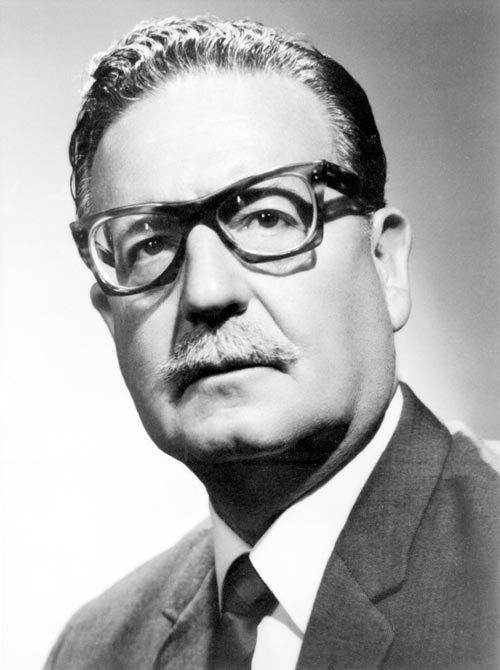
On September 11, 1973, General Augusto Pinochet led a bloody coup against President Salvador Allende in Chile. Allende died in the Presidential Palace as it was attacked by Pinochet’s army. Controversy still surrounds the role of Washington and the CIA in the overthrow of the popularly elected government of Allende, a self-proclaimed Marxist. For decades Allende’s name and the experience of the Popular Unity government was all but erased from history, not only in Chile but internationally. This first-ever anthology presents Allende’s voice and his vision of a more democratic, peaceful and just world to a new generation. "“I don’t see why we need to stand by and watch a country go communist because of the irresponsibility of its own people.” Henry Kissinger, on the prospect of Allende’s electoral victory in 1970. "This anthology is the first collection in English of Allende’s speeches and interviews . . . and will be of value for academic collections on Latin America."—Library Journal Features a substantial biographical introduction on Allende and an extensive chronology and bibliography.
Author

Salvador Guillermo Allende Gossens (Spanish: [salβaˈðoɾ aˈʝende ˈɣosens]; 26 June 1908 – 11 September 1973), more commonly known as Salvador Allende, was a Chilean physician and politician, known as the first Marxist to become president of a Latin American country through open elections. Allende's involvement in Chilean political life spanned a period of nearly forty years. As a member of the Socialist Party, he was a senator, deputy and cabinet minister. He unsuccessfully ran for the presidency in the 1952, 1958, and 1964 elections. In 1970, he won the presidency in a close three-way race. He was elected in a run-off by Congress as no candidate had gained a majority. As president, Allende adopted a policy of nationalization of industries and collectivization; due to these and other factors, increasingly strained relations between him and the legislative and judicial branches of the Chilean government—who did not share his enthusiasm for socialization—culminated in a declaration by Congress of a "constitutional breakdown." A center-right majority including the Christian Democrats, whose support had enabled Allende's election, denounced his rule as unconstitutional and called for his overthrow by force. On 11 September 1973, the military moved to oust Allende in a coup d'etat sponsored by the United States Central Intelligence Agency (CIA). As troops surrounded La Moneda Palace, he gave his last speech vowing not to resign. Later that day, Allende shot himself dead with an assault rifle, according to an investigation conducted by a Chilean court with the assistance of international experts in 2011. Following Allende's deposition, General Augusto Pinochet declined to return authority to the civilian government, and Chile was later ruled by a military junta that was in power up until 1990, ending almost 41 years of Chilean democratic rule. The military junta that took over dissolved the Congress of Chile and began a persecution of alleged dissidents, in which thousands of Allende's supporters were kidnapped, tortured, and murdered.